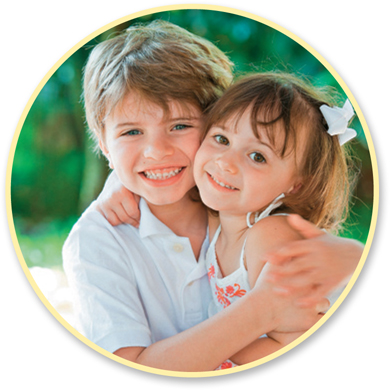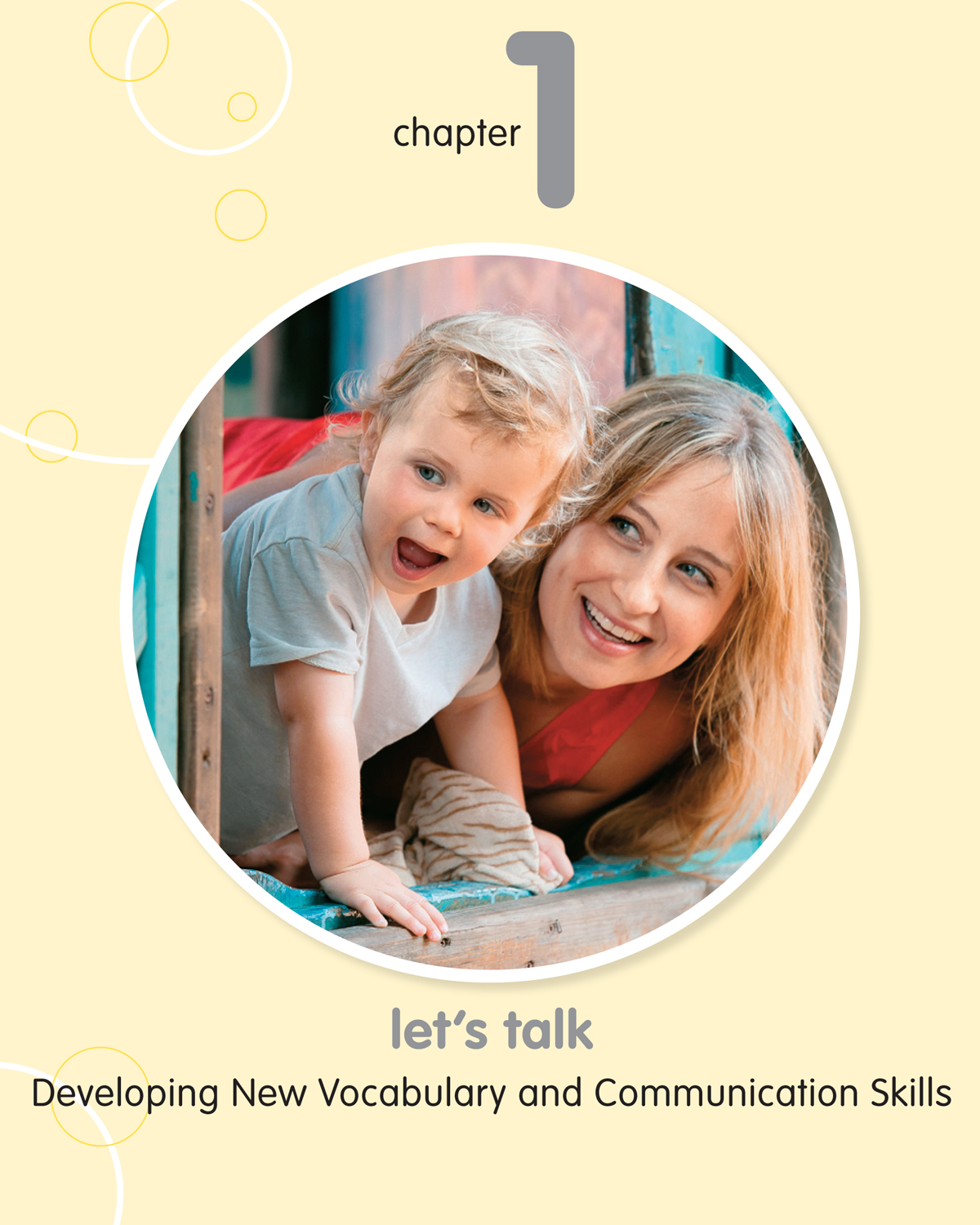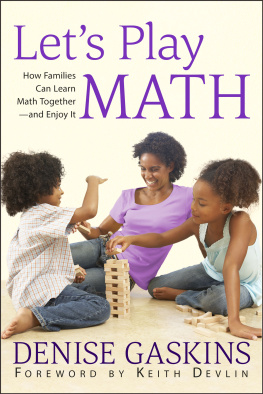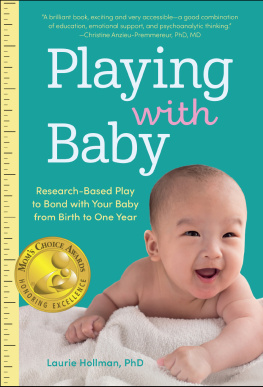This book is playfully dedicated to our children and grandchildren whose laughter, hugs, and kisses are the best. What better way for us to discover how to make a baby giggle, how to join a toddler in song, and how to foster a childs gleeful interest in the world than through the wondrous times with our own families? We dedicate this book to our amazing children Jennifer, Rachel, Katie, Ryan, Kenneth, and Rachel, and to grandchildren Alex and Maya for teaching us that every belly kiss, puddle, silly song, ball, and bubble is an opportunity to connect and have fun. We love you to the moon and beyond!
Lets Play and Learn Together
Fill Your Babys Day with Creative Activities
That Are Fun and Enhance Development
RONI COHEN LEIDERMAN, Ph.D.
and
WENDY S. MASI, Ph.D.
contents
section I
Play Ideas for Learning and Loving
chapter 1
lets talk
chapter 2
strong and healthy
chapter 3
all about me!
chapter 4
lets pretend
chapter 5
alphabet and number games
chapter 6
scientific thinking
chapter 7
making friends
chapter 8
laugh with me
chapter 9
icky, sticky fun
section II
Play Activities and Ideas for Making Life with Your Child Fun and Hassle-Free
chapter 10
play begins at home
chapter 11
places to go and people to meet
chapter 12
tried and true
introduction Be him.

Alex had rummaged through his tattered cardboard box of figurines mixed with an assortment of blocks and crayons and held out one of his favorite plastic dinosaurs. His mother was happily reading the Sunday newspaper and drinking her morning coffee, content to relax as her son played nearby. Lowering the paper, Mom looked at her two-year-old son now surrounded by the entire contents of the box dumped on the floor.
Be him, be him! he repeated excitedly.
There was something about Alexs enthusiastic request that energized her as she put down her coffee, extended her hand to take the figurine, and kneeled down. Mom, in her very best dinosaur voice, and Alex, holding another rather ferocious-looking creature, began a dialogue about mountains, candy canes, and bugs. An outsider observing this scene may have seen a mother and son just playing a silly game. What this playful parent understood was that she had been invited into her sons wondrous world of play and imagination, where Alex was developing language, turn taking, and creativity and where a deep loving connection was being fostered.
Childhood is the time for play. It is the time for children to discover the world around them through exciting, novel, interesting, and meaningful experiences. From the first simple songs and books you introduce to your baby to the more complex games and activities you share with your preschooler, you are developing strong bonds and engaging in countless moments of closeness and glee with your child.

Play is much more than just fun and games. It is vital for cognitive, social, and emotional development because it helps children develop their dexterity, imaginations, and communication skills while promoting friendships, empathy, and conflict resolution. Through play, children practice and reinforce what they are learning. They experiment and figure out how to manage their emotions, practice adult roles, and conquer their fears. They process information and think through problems while tackling new information. As children experience successes, their self-esteem rockets and their love of learning soars.
There is no battery-operated, computer-generated, or cuddly toy that can take the place of a parent who understands, appreciates, and encourages play. Playful parents support their children as they acquire new skills and build their confidence through encouragement. When done mindfully, parent-child play is a beautiful dance. You tune in to your childs interests and rhythms, knowing when to structure the environment and join in the fun. You also realize when to move back and allow for undirected independent play. A playful parent understands child development and offers activities and games that are age-appropriate and set the stage for learning. Being patient, understanding, flexible, and fun are some of the keys for developing a wonderful relationship with your child. Having a sense of humor and not stressing over paint on the floor or sand in the shoes is a big plus!
As you read this book, you will find information about child development and the activities that are best suited for your children at different ages and stages. You will discover new ideas for songs and games that will delight and teach your child and ways that play can be incorporated into everyday moments like bathing, mealtime, and shopping. The toys we encourage are the most basic: blocks, balls, toy vehicles, pretend figures and props, books, and dolls for both girls and boys that provide the foundation for a well-stocked, playful home. Most important, we hope you will find that place inside yourself that is eager to sing, dance, run, jump, and play with your child in your very best dinosaur voice!
Playful parenting is an attitude and approach to raising children that makes life with babies, toddlers, and preschoolers easier, more delightful, and even more insightful. It is our hope that this book will help you enjoy and appreciate the value of play for learning and connecting with your child. Before you turn to the next page, take a moment to reflect on the experiences you treasure from your own childhood. Remember where you found your fun, joy, and bliss and bring that as a gift to your child. The rewards are priceless.



P repare to be amazed as your child discovers the power of words. The capacity that young children have for learning language is astounding. By the time they enter school, most children have mastered the basics of their primary language and have the capacity to become bilingual or even trilingual if given the opportunity. This is the period where brain growth and maturation are the most intense. At no other time in life is language learning as rapid, as easy, and as important.
Language acquisition lays the foundation for literacy, problem solving, and rational thought as well as relationship building. Communication begins at birth with a newborns cries and becomes increasingly sophisticated through the ensuing weeks, months, and years. The way we listen to and talk with our children, the practice of reading with our children, and the richness of opportunities we provide have a significant impact on childrens abilities across a broad spectrum of developmental and academic achievements.
Although most children do not utter their first word until sometime around their first birthday, the foundations of language development begin to be established at birth, and many scientists believe that this development begins in the womb. For months before their birth, neonates listen to their mothers voices and a plethora of other sounds, like the beating of the heart and music, which set the foundation for language skill development.
Next page







